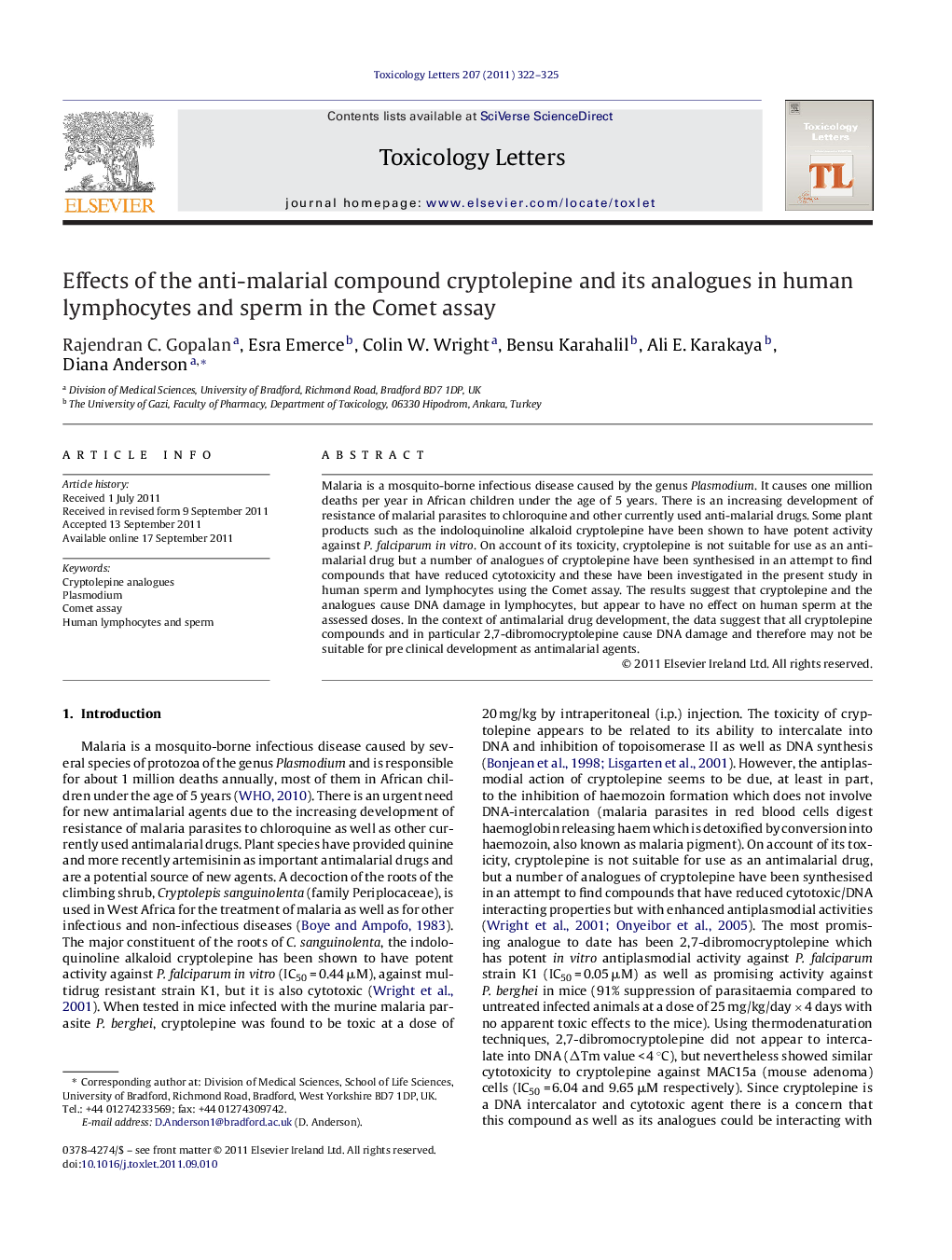| Article ID | Journal | Published Year | Pages | File Type |
|---|---|---|---|---|
| 5860845 | Toxicology Letters | 2011 | 4 Pages |
Malaria is a mosquito-borne infectious disease caused by the genus Plasmodium. It causes one million deaths per year in African children under the age of 5 years. There is an increasing development of resistance of malarial parasites to chloroquine and other currently used anti-malarial drugs. Some plant products such as the indoloquinoline alkaloid cryptolepine have been shown to have potent activity against P. falciparum in vitro. On account of its toxicity, cryptolepine is not suitable for use as an antimalarial drug but a number of analogues of cryptolepine have been synthesised in an attempt to find compounds that have reduced cytotoxicity and these have been investigated in the present study in human sperm and lymphocytes using the Comet assay. The results suggest that cryptolepine and the analogues cause DNA damage in lymphocytes, but appear to have no effect on human sperm at the assessed doses. In the context of antimalarial drug development, the data suggest that all cryptolepine compounds and in particular 2,7-dibromocryptolepine cause DNA damage and therefore may not be suitable for pre clinical development as antimalarial agents.
⺠The Comet assay was used to examine DNA damage in human lymphocytes and sperm. ⺠Cells were treated with cryptolepine and its analogues. ⺠Some gave positive results in lymphocytes but none were positive in sperm. ⺠These compounds may not be suitable for pre-clinical development as antimalarial agents.
